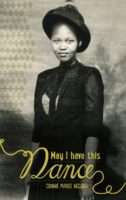I believe a family is much like a business in that it consists of individuals who lead their own lives but are united by a common goal.
In a business, that common goal is to create a product or provide a service to generate profits for the benefit of all employees.
In a family, that common goal is less defined. It can be based on love alone, or it can include more concrete goals such as providing for future generations.
The reason many families don’t pursue goals as a group is because of the high emotional content that often comes with family interactions. Sibling rivalry, spousal disagreements, jealousy between cousins – all these factors come into play when families get together.
I believe families can benefit from running themselves along the same lines as a business, right down to having a vision, a mission and a formal constitution. Sol and I did this in running our family. Today, I am a great-grandmother. More than two generations have been added to the collective and we are still largely united in pursuing our values of knowledge, caring and unity. We are also working to create a legacy of intellectual, emotional and practical wealth for the generations to come. It is my hope that future generations of the Ngcaba family will build upon these achievements.
Ask yourself
Would my extended family benefit from being run as a business? Which business practices would be useful in my family today?
My family has designed its own coat of arms. We have a mission statement and a vision. We even have a family constitution that goes into specifics about, for instance, our family’s attitude towards adoption and surrogate parenting (we are open to both) and mechanisms for managing family conflict (we set up an independent conflict-resolution committee that acts as mediator to the conflict).
We go to great lengths to promote our family’s cohesion. This is necessary if we are to enjoy the full benefits of operating as a group, such as collective bargaining for medical aid or household insurance and organising workshops to collectively help the youngsters in our family come to terms with “adult” issues such as buying a car, getting married and paying income tax.
We are aware that it is important for everyone to feel invested in such a family structure, so we always try to involve all members of the extended family when making decisions, initiating projects or amending our constitution, as we need to do in a constantly changing world.
For those who are interested, I have provided a copy of my family’s constitution at the end of this book. Readers are welcome to adapt this for their family as they see fit. It’s a lot of work, but the benefits of formalising such structures are real and will be felt for generations to come.
***
Tell us: What are your thoughts on Connie Ngcaba’s ideas on creating a legacy?


